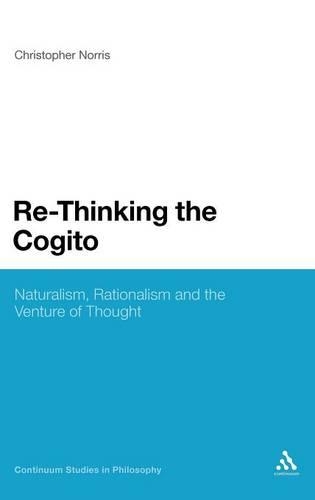
Re-Thinking the Cogito: Naturalism, Reason and the Venture of Thought
(Hardback)
Available Formats
Publishing Details
Re-Thinking the Cogito: Naturalism, Reason and the Venture of Thought
By (Author) Professor Christopher Norris
Continuum Publishing Corporation
Continuum Publishing Corporation
12th August 2010
United States
Classifications
Tertiary Education
Non Fiction
128.2
Physical Properties
Hardback
288
Width 156mm, Height 234mm
Description
Re-Thinking the Cogito seeks to combine a strongly naturalistic with a distinctively rationalist perspective on some nowadays much-discussed issues in philosophy of mind. Against the common view that they involve downright incompatible conceptions of mind, knowledge and ethics it seeks to unite a naturalism that draws on recent advances in neurophysiology and cognitive science with an outlook that gives full weight to those normative values at the heart of rationalist thought. True to the book's constructive spirit, Norris offers various detailed proposals for bringing the two approaches into a mutually enhancing - though also mutually provocative - relationship. He finds that claim strikingly prefigured in Spinoza's working-out of a non-reductive yet metaphysically uncompromising mind/body monism. Moreover he suggests how a thoroughly naturalised approach might yet become a locus of productive engagement with the work of an ultra-rationalist thinker such as Alain Badiou. Thus Norris puts the case that physically embodied human thought has cognitive, intellectual and creative powers that cannot and need not be accounted for in terms of conscious (let alone self-conscious) reflection.
Reviews
Norris combines a naturalistic and rationalist perspective in considering issues relating to the philosophy of mind. He provides various detailed proposals for bringing the two approaches into a mutually enhancing, reciprocally provocative relationship. * Times Higher Education *
Author Bio
Christopher Norris is Distinguished Research Professor in Philosophy at the University of Cardiff, Wales, and has taught at many universities in India, Australia, Greece, Spain, Germany, Canada, China, the US, and elsewhere. He is the author of numerous books on aspects of philosophy, critical theory, and modern intellectual history.
